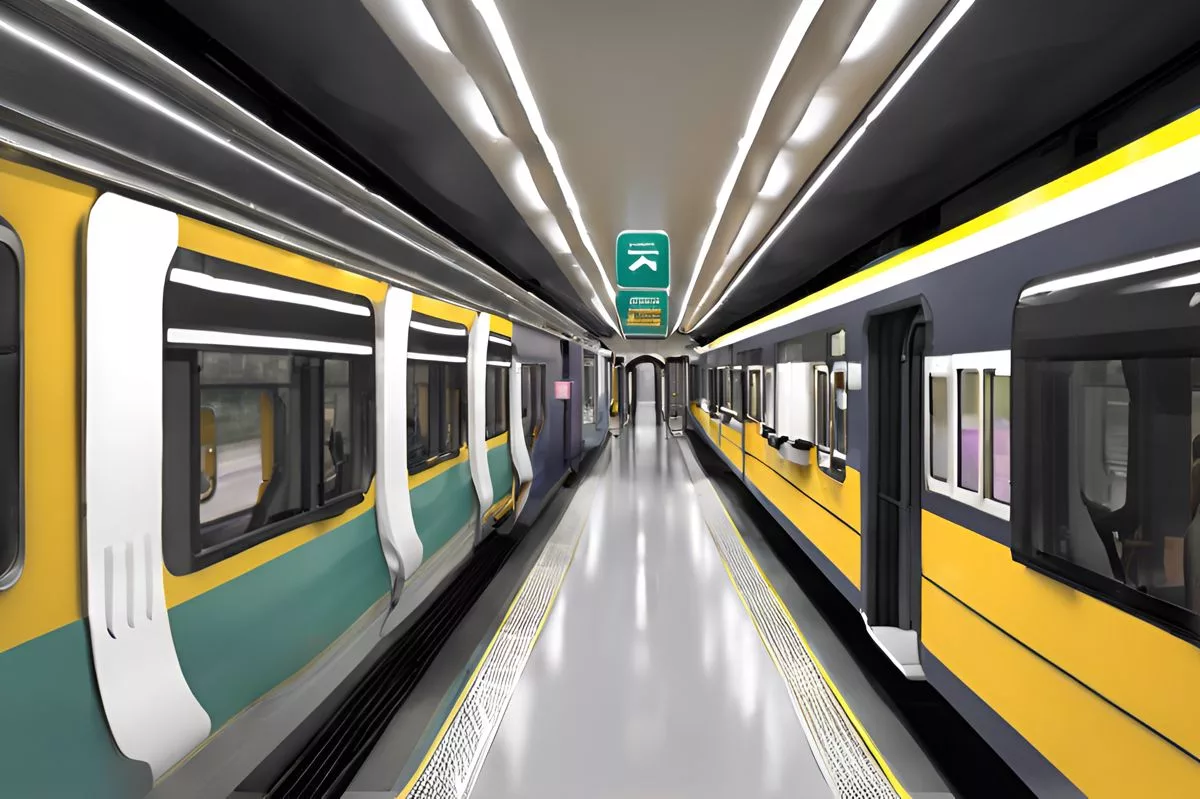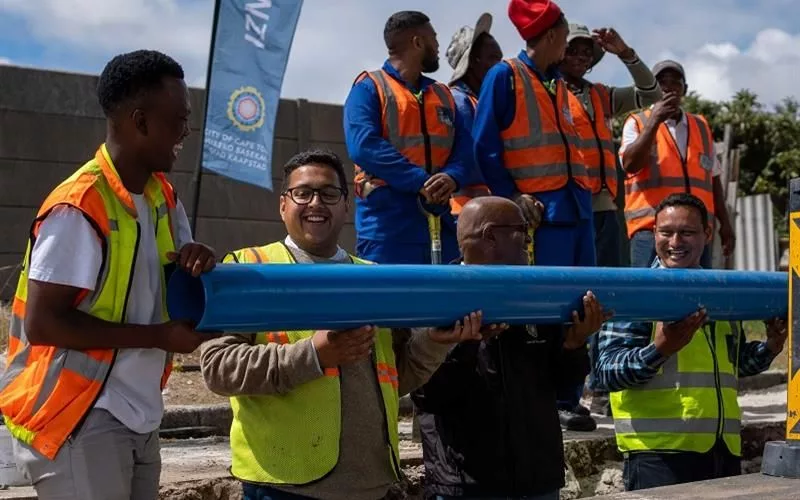President Cyril Ramaphosa envisions a South Africa that is inclusive, diverse, and provides equal opportunities to all, including in the transportation sector. The Presidential Working Group on Disability is committed to ensuring that every policy, programme, and practice is inclusive. The National Land Transport Act and revised White Paper on National Transport policy have strategies to increase universal accessibility, but there are still issues of safety and accessibility. The goal is a universally accessible national transport system that champions the rights and dignity of all South Africans.
What is President Ramaphosa’s vision for universal accessibility in South Africa’s transport sector?
President Cyril Ramaphosa envisions a South Africa that provides equal rights and opportunities to all and champions diversity. The Presidential Working Group on Disability is committed to ensuring that every policy, programme, and practice are inclusive, including in the transportation sector. The National Land Transport Act and revised White Paper on National Transport policy have strategies to increase universal accessibility, but issues of safety and accessibility still need attention in existing systems. The goal is a universally accessible national transport system that champions the rights and dignity of all South Africans.
In the dynamic setting of Ekurhuleni’s Birchwood Conference Centre, President Cyril Ramaphosa takes centre stage at the Transport Summit on Universal Accessibility. His message is not just clear, but also engaging and motivational: to create a South African landscape that is wholly owned by all its inhabitants, that champions diversity, and that provides equal rights and opportunities to all. This is the portrait of South Africa that Ramaphosa sketches at the summit, bearing the weight of 30 years of democracy and the aspirations of a nation.
The summit marks a new dawn of inclusivity, focusing on the rights and dignity of people with disabilities. Over the past three decades, South Africa has made meaningful progress in this regard, guided by the principles of its constitution. A key highlight was in 2007 when South Africa embraced the UN Convention on the Rights of Persons with Disabilities, further cementing its dedication to equality, dignity, safety, and freedom of movement for everyone.
The Role of The Presidential Working Group on Disability
At the heart of this dedication lies the Presidential Working Group on Disability. Their mission is to ensure that every policy, programme, and practice are inclusive and pave the way for full participation of persons with disabilities in all national affairs. The spirit of the transport summit inherently mirrors this commitment.
The transportation sector, the driving force of any economy, acts as the trigger for economic development and social integration. Hence, making it accessible to people with disabilities is not only a moral obligation but also a strategic necessity. From creating safe routes for pedestrians and cyclists to having accessible public transport systems, universal accessibility is vital for a prosperous nation.
Implementing Accessibility in the Transport Sector
The National Land Transport Act, for example, enforces universal access as a basic need for all land-based public transport. It caters to various sections of the society including disabled individuals, the elderly, children, expectant mothers, and those accompanied by children. However, despite these protective regulations, there are significant areas that still need attention to make the national transport system fully accessible.
To address these urgent needs, the revised White Paper on National Transport policy was published in 2021. It presents numerous strategies that acknowledge the existing constraints in the accessibility of the transport system, especially for persons with disabilities.
A fundamental part of these strategies involves transformed urban planning methods and the execution of integrated public transport programmes across various municipalities. The Public Transport Network Grant plays an instrumental role in encouraging the implementation of universal design and universal access. Ten municipalities are already included in this grant system, with universal accessibility being a prerequisite for funding.
Ensuring Universal Accessibility Across Various Transport Mediums
Alongside this, measures are underway to introduce a universal accessibility standard for all road-based vehicles, backed by vehicle manufacturers. This includes both public transport passengers and drivers. Remarkably, the Department of Transport has issued a nationwide policy for parking discs, allowing drivers with disabilities to use a disc obtained anywhere in the country.
The Passenger Rail Agency of South Africa, PRASA, is also moving towards universal accessibility by implementing policies with norms and standards to ensure accessible trains and level station platforms. The Gautrain, for instance, has provided level boarding on its trains from the start. Future infrastructure development projects will aim to include these design and usability factors from the initial phase, rather than retrofitting them later.
Airports Company South Africa is also taking significant steps to enhance accessibility for persons with disabilities throughout its facilities. Their efforts include setting up designated parking spaces for disabled individuals, assisted passengers’ lounges, and private search facilities at security checkpoints.
The maritime sector is also part of this transformative wave. Industry partners and state-owned bodies are witnessing enhanced universal accessibility in river crossings, ports, and sailing clubs.
Addressing Challenges and Looking to the Future
The fast-paced technological evolution and emerging business models in transportation, like e-hailing and car sharing, are also recognized. These novel systems are revolutionizing the sector and need to be included in future plans in cooperation with service providers.
While welcoming these advancements, the country also has to tackle challenges in existing systems. Issues of safety and accessibility in learner transport logistics, the taxi industry, which caters to approximately 70 percent of the South African population, and pedestrian and cyclist safety are areas of concern.
Promisingly, the minibus taxi services have shown their capability to reasonably accommodate passengers with disabilities. With more universally-designed vehicles, they can provide safer and better access as part of an integrated public transport network.
Taking Action: The Importance of Concrete Solutions
The conference’s attendees understand the need to move beyond merely acknowledging the problems to finding tangible solutions. In discussion groups, they strive to comprehend how to enable greater accessibility, address skills shortages in the engineering and planning sectors, and engage more effectively with users to understand their challenges and needs.
The mantra of the disability sector is ‘nothing about us without us.’ Genuine solutions cannot be crafted in isolation but need to be developed in response to user needs. The ultimate goal is to achieve a universally accessible national transport system that champions the rights and dignity of all South Africans, making the country a home for all.
1. What is President Ramaphosa’s vision for universal accessibility in South Africa’s transport sector?
President Cyril Ramaphosa envisions a South Africa that provides equal rights and opportunities to all and champions diversity. The Presidential Working Group on Disability is committed to ensuring that every policy, programme, and practice are inclusive, including in the transportation sector. The goal is a universally accessible national transport system that champions the rights and dignity of all South Africans.
2. What is the role of The Presidential Working Group on Disability?
The Presidential Working Group on Disability mission is to ensure that every policy, programme, and practice are inclusive, paving the way for full participation of persons with disabilities in all national affairs. The spirit of the transport summit inherently mirrors this commitment.
3. How is accessibility being implemented in the transport sector?
The National Land Transport Act enforces universal access as a basic need for all land-based public transport. The revised White Paper on National Transport policy presents numerous strategies that acknowledge existing constraints in the accessibility of the transport system, especially for persons with disabilities. The Public Transport Network Grant plays an instrumental role in encouraging the implementation of universal design and universal access.
4. How is universal accessibility being ensured across various transport mediums?
Measures are underway to introduce a universal accessibility standard for all road-based vehicles, backed by vehicle manufacturers. PRASA is implementing policies with norms and standards to ensure accessible trains and level station platforms. The Gautrain has provided level boarding on its trains from the start. Airports Company South Africa is also taking significant steps to enhance accessibility for persons with disabilities throughout its facilities. The maritime sector is also part of this transformative wave.
5. What challenges are being addressed in the transport sector?
Issues of safety and accessibility in learner transport logistics, the taxi industry, which caters to approximately 70 percent of the South African population, and pedestrian and cyclist safety are areas of concern.
6. How is action being taken to achieve greater accessibility in the transport sector?
The conference’s attendees understand the need to move beyond merely acknowledging the problems to finding tangible solutions. In discussion groups, they strive to comprehend how to enable greater accessibility, address skills shortages in the engineering and planning sectors, and engage more effectively with users to understand their challenges and needs. The ultimate goal is to achieve a universally accessible national transport system that champions the rights and dignity of all South Africans, making the country a home for all.








